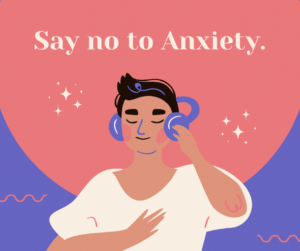Considering hypnotherapy for phobias and fears? They are common issues that affect millions of people worldwide. These intense, irrational fears can significantly impact one’s quality of life, limiting activities and causing considerable distress. While traditional therapies and medications can provide relief, an increasing number of individuals are turning to hypnotherapy as an effective alternative treatment. This blog explores how hypnotherapy can help overcome phobias and fears, backed by scientific evidence and real-life success stories.
Understanding Phobias and Fears
Phobias are persistent, irrational fears of specific objects, situations, or activities. Common phobias include fear of heights (acrophobia), spiders (arachnophobia), and flying (aviophobia). Unlike general fears, phobias often lead to avoidance behaviours and can trigger severe anxiety or panic attacks.
Fears, on the other hand, are natural responses to perceived threats and can be rational or irrational. While everyone experiences fear at times, chronic or irrational fears can disrupt daily life and well-being.
What is Hypnotherapy?
Hypnotherapy is a therapeutic technique that uses hypnosis to induce a state of focused attention, heightened suggestibility, and deep relaxation. In this state, individuals are more open to suggestions, which can help change negative thought patterns and behaviours. A trained hypnotherapist at Home – Mind Coaching (ourmindcoaching.com) guides the process, helping individuals confront and overcome their fears and phobias.
The Science Behind Hypnotherapy for Phobias and Fears
Research supports the effectiveness of hypnotherapy in treating phobias and fears. Studies published in the “American Journal of Clinical Hypnosis” which you can about here: American Journal of Clinical Hypnosis: Vol 28, No 3 (tandfonline.com) and the “International Journal of Clinical and Experimental Hypnosis” have shown that hypnotherapy can significantly reduce the intensity of phobic responses and improve overall mental health.
Hypnotherapy works by accessing the subconscious mind, where deeply ingrained fears and phobias reside. During hypnosis, the therapist can help reframe these fears, making them less overwhelming. Techniques such as desensitization and visualization are commonly used to create new, positive associations with the feared object or situation.
Benefits of Hypnotherapy for Phobias and Fears
- Non-Invasive and Drug-Free: Hypnotherapy is a natural treatment that does not involve medications, making it a safe option with no side effects.
- Long-Lasting Effects: By addressing the root cause of the phobia or fear in the subconscious mind, hypnotherapy can lead to lasting changes.
- Reduced Anxiety: Hypnotherapy can also help reduce overall anxiety levels, improving mental well-being and quality of life.
- Improved Confidence: Overcoming phobias and fears can boost self-esteem and confidence, empowering individuals to live more fully.
- Personalized Treatment: Hypnotherapy sessions are tailored to the individual’s specific fears and phobias, ensuring a personalized approach.
How Hypnotherapy Works for Phobias and Fears
During an online hypnotherapy or face to face hypnotherapy session at Mind Coaching, the Teesside hypnotherapy specialist, the therapist begins by discussing the individual’s specific fears and goals. The therapist then guides the individual into a state of deep relaxation using techniques such as progressive muscle relaxation, deep breathing, and guided imagery. Once in this state, the therapist can use various techniques to address the phobia or fear:
- Desensitization: Gradually exposing the individual to the feared object or situation in a controlled and safe manner, helping them build tolerance and reduce fear.
- Visualization: Encouraging the individual to visualize themselves confronting and overcoming their fear, creating positive mental associations.
- Positive Suggestions: Providing affirmations and positive suggestions to reframe the fear and build confidence in the individual’s ability to handle the feared situation.
- Regression Therapy: Exploring past experiences that may have contributed to the development of the phobia or fear, and re-framing these experiences in a more positive light.
Real-Life Success Stories
Many individuals have successfully overcome their phobias and fears through hypnotherapy. For example, Sarah, a 30-year-old graphic designer, had a debilitating fear of public speaking that hindered her career growth. After a few hypnotherapy sessions, she was able to address the root cause of her fear and gradually build confidence in her speaking abilities. Today, Sarah confidently presents in front of large audiences without anxiety.
Another success story is Mark, a 40-year-old sales manager, who struggled with a severe fear of flying. This phobia limited his ability to travel for work and leisure. Through hypnotherapy, Mark learned to manage his anxiety and reframe his fear of flying. He now travels regularly and enjoys his journeys without the overwhelming fear that once plagued him.
Choosing the Right Hypnotherapist
Selecting a qualified and experienced hypnotherapist is crucial for achieving successful outcomes. Look for therapists who are certified by reputable organizations such as the American Society of Clinical Hypnosis (ASCH) or the British Society of Clinical Hypnosis (BSCH). Reading reviews and testimonials on the Mind Coaching website can also provide insights into the therapist’s track record and client satisfaction.
Conclusion
Phobias and fears can be debilitating, affecting various aspects of life. While traditional treatments are valuable, hypnotherapy offers a compelling alternative or complementary solution. By accessing the subconscious mind, hypnotherapy can help individuals reframe negative thought patterns, reduce the intensity of phobic responses, and improve overall well-being. If you or a loved one struggles with phobias or fears, hypnotherapy might be the key to unlocking a life free from these limiting anxieties. Always consult with a healthcare professional before starting any new treatment to ensure it is the right choice for you.





